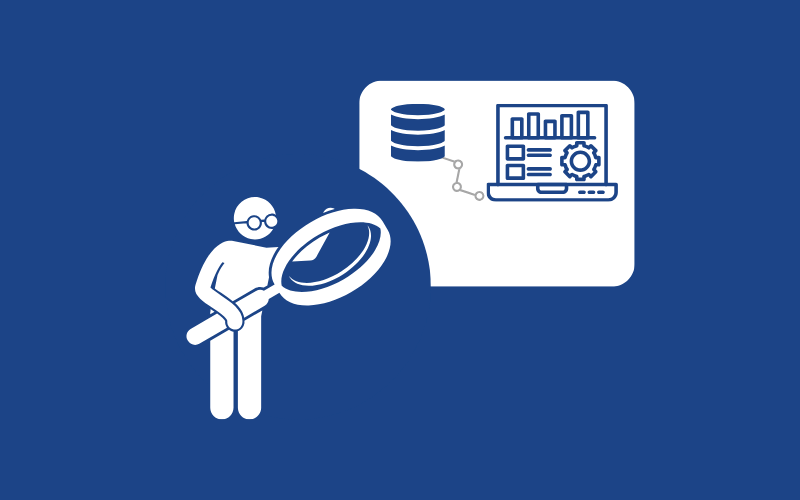In today’s digital age, businesses are constantly seeking ways to connect with their audience on a personal level. One strategy that has gained immense popularity is data-driven personalization. This approach involves using data and insights to tailor user experiences, providing them with content and recommendations that are highly relevant to their needs and preferences. In this article, we will delve deep into the world of data-driven personalization, exploring its benefits, implementation, and the key role it plays in enhancing customer engagement.
Introduction
Data-driven personalization has revolutionized the way businesses interact with their customers. Gone are the days of generic marketing messages that target a broad audience. With the advent of advanced data analytics tools, companies can now harness the power of data to create personalized experiences that resonate with individual consumers.
Data-driven Personalization: What Is It?
Before we dive into the intricacies, let’s establish a clear understanding of what data-driven personalization entails. At its core, personalization is the practice of using data and analytics to customize user experiences. It involves collecting and analyzing user data to gain insights into their behavior, preferences, and needs. These insights are then used to deliver personalized content, recommendations, and offers.
The Benefits of Data-driven Personalization
Enhanced User Engagement
Personalization has a direct impact on user engagement. By tailoring content and recommendations to individual preferences, businesses can capture the attention of their audience more effectively. When users feel that a website or app understands their needs, they are more likely to engage with the content and spend more time exploring the platform.
Increased Conversion Rates
One of the primary goals of any business is to convert visitors into customers. Data-driven personalization can significantly boost conversion rates by presenting users with products or services that align with their interests. This targeted approach increases the likelihood of users making a purchase or taking a desired action.
Improved Customer Loyalty
Personalization fosters a sense of connection between users and brands. When customers receive personalized recommendations and offers, they are more likely to develop loyalty towards the business. Repeat purchases and long-term relationships become more attainable through effective data-driven personalization.
Enhanced Customer Satisfaction
Customers appreciate when their needs are anticipated and met. Data-driven personalization not only meets these expectations but often exceeds them. When users find content and products that align with their preferences effortlessly, they are left with a satisfying experience that keeps them coming back for more.
Implementing Data-driven Personalization
Now that we’ve explored the benefits, let’s discuss how businesses can implement data-driven personalization effectively.
Data Collection and Analysis
The foundation of personalization lies in data collection and analysis. Businesses must gather relevant data about their users, including their demographics, behavior, and interactions with the platform. Advanced analytics tools can then process this data to uncover actionable insights.
Segmentation
Segmentation is the process of dividing users into distinct groups based on common characteristics. These segments allow businesses to tailor their content and recommendations more effectively. Segmentation criteria may include age, location, browsing history, and purchase behavior.
Personalized Content
Once user segments are defined, businesses can create personalized content and recommendations for each group. This may involve displaying product recommendations, customizing email marketing campaigns, or offering personalized homepage experiences.
Testing and Optimization
Personalization is an ongoing process that requires continuous testing and optimization. Businesses should regularly evaluate the effectiveness of their personalization strategies and make adjustments based on user feedback and performance metrics.
FAQs
What is the role of artificial intelligence in data-driven personalization?
Artificial intelligence (AI) plays a crucial role in data-driven personalization by automating data analysis and prediction. AI algorithms can process vast amounts of data quickly and accurately, allowing businesses to make real-time personalization decisions.
Is data-driven personalization only relevant for e-commerce businesses?
While data-driven personalization is particularly beneficial for e-commerce, it can be applied to various industries. Any business that collects customer data can leverage personalization to enhance user experiences.
How can businesses ensure data privacy and security when implementing personalization?
Data privacy is a paramount concern. Businesses should adhere to strict data protection regulations and implement robust security measures to safeguard user data. Transparency and consent are also essential, with users having the option to control the data collected about them.
What are some common challenges in implementing personalization?
Challenges include data quality issues, ensuring accurate segmentation, and striking the right balance between personalization and privacy concerns. Additionally, businesses must continuously adapt to changing user preferences and technological advancements.
Are there any notable examples of companies excelling in personalization?
Several companies have excelled in this field, including Amazon, Netflix, and Spotify. These companies use data-driven personalization to offer highly personalized recommendations, content, and user experiences.
What is the future of data-driven personalization?
The future of data-driven personalization looks promising. As technology continues to advance, businesses will have access to even more sophisticated tools and data sources. This will enable them to provide increasingly personalized and engaging experiences for their users.
Conclusion
In conclusion, data-driven personalization is a powerful strategy that empowers businesses to connect with their audience on a deeper level. By harnessing the insights derived from user data, businesses can create personalized experiences that drive engagement, conversions, and customer loyalty. As technology continues to evolve, the potential for personalization is boundless, promising even more exciting developments in the future.


